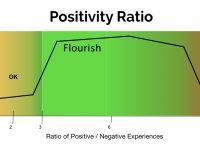Tina Hallis's Blog, page 19
December 22, 2019
Santa Needed a Little Help – Savoring Fun Holiday Memories

It wasn’t fair! Each Christmas morning I would find wonderful presents under the tree for me, but Santa never brought anything for my mom and dad. I was a little disappointed in Santa, to say the least. My 7-year-old self decided it was time I took matters into my own hands. But what could I do? I didn’t have any money to buy them presents, much less have a way to go shopping without them. I was going to have to get creative.
As I looked around the house to get ideas, I noticed an empty medicine bottle my mom had been saving. Perfect! I made a little label and taped it to the outside. I filled it with water and then added a few drops of my mom’s perfume. Maybe she needed a lighter version of her favorite scent.
Dad was a little harder. I finally decided I would wrap a pair of his socks. I was sure he wouldn’t recognize them since he had so many. And don’t all white socks look the same anyway?
At last! My presents were ready to go under the tree on Christmas morning with tags that said: “From Santa.”
The big day finally came. I don’t’ know if my parents were more surprised or confused. But I think they quickly figured out the truth. They happily opened their special presents and expressed their thanks to Santa for finding them such fine gifts. I felt so happy! I was officially Santa’s helper.
I haven’t thought about that morning in quite a while, but it came to my mind the other day. I enjoyed much fun and laughter as I shared it with my husband and 14-year-old daughter!
What fun holiday memories can you recall that bring a smile to your lips? Be sure to share them and ask your friends and family about their happy memories, too. Savoring these special times feels so good!
December 15, 2019
Are You a Kind Person? Always?

Would you consider yourself a kind person? I’m guessing that you said yes. So have you ever done or said anything unkind, even just a little? I’m guessing that you probably said yes again (unless you are a perfect person).
Think of a recent example. What was it about the situation that caused you to be unkind? Did you run out of patience because you were exhausted, struggling with a horrible headache, or incredibly stressed? Or maybe the other person said something that triggered you?
I know there’ve been times when I’ve felt hurt by someone. They might have been making fun of me by pointing out a mistake I’d made. They might even have meant to tease, but it hit a nerve. My defense might be to hurt them back by saying something not very nice about them.
So what can we do to be kinder and avoid those times when we’re not? Here are two approaches that have helped me.
1. Remember that we’re all imperfect humans. The older I get, the more I learn that we all have our triggers, our baggage, our wounds, and our desire to defend ourselves and our beliefs. If we could see into people’s pasts or read their minds, we could better understand their sometimes unkind words or actions. And instead of feeling upset or triggered to lash back, we could feel more compassion, tolerance, and patience.
2. Keep our positivity battery charged. We not only need to take care of our physical needs, like sleep and food, but we also need to build our internal resources by adding more positivity to our lives. I’ve found that shifting our thinking away from our natural negative focus to also see the good is very powerful. This reduces our stress and builds our willpower so we have more capacity to pause, notice, and choose our response.
How about you? Could either or both of these approaches help you?
December 8, 2019
Why Our Brains Are Like Puppies – They both need taming & training

Back in July, I told you about our new puppy, Tyson. If you’ve ever had a puppy, you know how fun and lovable they can be . . . and how much trouble they can get into!! There’ve been several times when we’ve left Tyson alone (with fences to keep him in the kitchen) and he managed to pull something off a counter and destroy it. We’ve been working hard on training him to obey and teaching him tricks. This includes teaching him that he is NOT the boss, and he needs to listen to us.
It struck me how our brains are very similar to puppies. I’ve learned that without some “training” and guidance, they will find trouble and make our lives more difficult. Without input from us, our brains will think about past frustrations, anticipate the worst in the future. and find plenty to worry about. Sometimes it can feel like we’ve lost control and that the negative thoughts control us, that we’re not the boss of our brains.
Dr. Marcia Reynolds, the author of Outsmart Your Brain, says that “The brain responds to stimuli long before your capacity for logic, compassion, and discerning thoughts can be formed. Your immediate reactions often produce bad results . . . because the brain is
paranoid,
judgmental,
rebellious, and
a master rationalizer”
I always thought that I saw the world as it really was; that I saw my work, other people, my life as they truly were. But my studies of Positive Psychology have taught me how our thoughts get in the way. They can distort our reality and even block out our ability to see the good in our lives. I never knew that we had the power to train and tame our brains; that we could have more control over our thoughts for a happier and less stressful life. As you know, it’s NOT easy!! But we can get better at it. That’s what these weekly tips are all about; telling our brain what to do instead of letting them find trouble.
This week, see if you can notice at least five times when your brain’s negative thoughts are causing trouble. Awareness is a big step!
December 1, 2019
Gratitude – It’s not something to think about

For many people around the world, we have entered the season with holidays that are about reflection and gratitude. Yet, it’s easy to feel too busy to take the time to actively practice gratitude. I know this was true for me. Then I learned about the research that shows it can help us sleep better, be more optimistic, more easily forgive others, improve our immune system, plus more. This information motivated me to be more intentional about taking time for gratitude. I’m so glad I did because it’s made a huge difference in my life!
I’ve also learned that if we just think about gratitude, we miss out on most of the benefits. We can quickly come up with a list of things we’re grateful for without experiencing a connection to them. If we want to truly “feel” grateful, it needs to be heartfelt, not just a thought.
So how can we go beyond thinking about gratitude to feeling it? Here are some of my favorite strategies you can try.
Make it a discussion with someone else. Share what you’re grateful for and provide background and context to the other person. This can help bring it to life.
Reflect on why you’re grateful for it. Why is it helpful or beneficial for you or your life? Keep digging to find the true “Why.”
Consider how your life would be without it. The trick is to do this without taking it to the point that you feel sad about the possibility of losing it; just enough to really appreciate it.
Create a mood or environment that makes it easier to feel the emotion of gratitude. Maybe it starts with listening to a favorite song that touches your heart or remembering a special time that helps you feel heart-centered.
Give one or two of these a try and see if you notice the difference. Things you might choose to appreciate could include a person, a place, a situation, a thing, an opportunity, or even something you’re glad you DON’T have. You could find things from your current life, your past, or even things you are looking forward to. For more insights, check out this article by Dr. Robert Emmons, a leading researcher on gratitude.
November 24, 2019
Want Less Stress? Don’t Keep Your Hand on Life’s Hot Stove

Last week I was excited to share Shirzad Chamine’s concept of our Saboteurs; those negative voices in our head that get in the way of our happiness and success. This week, I would like to bring you one of his articles I really enjoyed that digs a little deeper into why we should limit the time we give these voices.
_________________________
In my Stanford lectures on Positive Intelligence and Saboteurs, I invite students to raise their hand any time they feel skeptical about something I’ve said.
A lot of hands usually go up when I make this statement:
“Stress and unhappiness are always a choice. Any negative feelings you experience are because you’ve chosen to listen to your Saboteurs.”
The reactions from my students are usually along these lines:
“But, Shirzad — Sometimes things happen to us that are truly awful — such as losing a job or botching a presentation. Isn’t it normal to feel upset about it?”
“If I don’t feel bad about mistakes that I make, I won’t learn from them and will probably just repeat them.”
“When it comes to a major project, stress energizes me and drives me to do my best. If I don’t feel stress, won’t I under prepare or under perform?”
I typically respond to them with an exchange that goes something like this:
Me: Are unpleasant physical sensations, such as pain, ever good for us?
“Yes, of course,” they say. Invariably someone will point out how pain is useful when it warns us of danger, such as when we accidentally touch a hot stove or tweak a muscle when working out.
Me: “Quite right. Now, for how long do you need to feel the pain to get the message?”
“A split second,” they usually respond.
Exactly. A split second is all it usually takes. Once you benefit from the informative warning of a negative sensation, you automatically want to take action and let the pain go.
Yet our Saboteurs keep us in a cycle of replaying our disappointments and anxieties over and over again…
…the Judge beats you up steadily and uses shame and guilt to teach you a lesson.
…the Controller, Stickler, and Hyper-Achiever consume you with anxiety about the terrible consequences that might ensue.
…the Avoider tricks you into procrastinating, which leads to more anxiety.
And so on.
Disappointment over a setback or mistake is only useful for about 10 seconds until you switch to curiosity about how to learn from it.
And feeling stress over an important presentation or deliverable is of limited benefit at best – only up until the time you start preparing. About 10 seconds worth! Beyond that, it can actually hinder your performance.
Whenever you find yourself in a negative feeling or reaction for more than the informative 10 seconds, I encourage you to try this easy practice:
1. Pause. Ask yourself if you’ve already heard the message and if there is any value in staying in the reaction.
2. Chuckle to your Saboteur and say, “I’ve got it and I’m on it. Now get out of my way!”
Take your hand off the hot stove of life’s challenges. You’ll see how much easier life instantly becomes.
November 17, 2019
Do You Know Your Saboteurs? Learn How and Improve Your Positive Intelligence

I’m ever so slowly getting better at noticing the voice inside my head. And I’m getting better at finding amusement in it’s sometimes silly or outrageous reactions. But I’ve just learned about another great resource that can help us understand and quiet this survival instinct.
A few weeks ago, I heard about Shirzad Chamine and his book, “Positive Intelligence.” He has a great personal story that I won’t spoil here, but in brief, he hit a point in his life where he realized that he was letting the negative voice in his head run his life. Shirzad has since devoted his career to figuring out how people can increase the “percentage of time our mind is acting as our friend rather than as our enemy.” He calls it PQ; Positive Intelligence Quotient. His journey has led him to be a New York Times bestselling author and chairman of CTI, the largest coach-training organization in the world.
One of my favorite concepts in Shirzad’s book is the way he names and identifies the negative voices in our head. He breaks it down into 10 types of survival mind patterns that he calls saboteurs. These are beliefs and habits that get in the way of our happiness and fulfilling our potential.
The Judge: Compels us to find fault with ourself, others and our conditions and circumstances
The Stickler: Compels us to take our need for perfection, order, and organization to an extreme
The Pleaser: Compels us to gain acceptance by constantly helping, pleasing, and rescuing others
The Hyper-Achiever: Compels us to pursue constant performance and achievement for self-validation
The Victim: Compels us to feel that bad things always happen to us and use our poor me message as a way of gaining attention
The Hyper-Rational: Compels us to have an intense and exclusive focus on the rational and analytical aspects of everything, including relationships
The Hyper-Vigilant: Compels us to feel intense anxiety about all the dangers and uncertainty surrounding us
The Restless: Compels us to constantly be in search of greater excitement through perpetual busyness
The Controller: Compels us to take charge and control situations and other people
The Avoider: Compels us to avoid difficult and unpleasant tasks and conflicts
Shirzad even has a self-assessment you can take to help you identify your top saboteurs. I wasn’t surprised to learn that in addition to the common Judge, I also had The Pleaser, The Avoider, and The Hyper-Achiever.
In his many years of coaching highly successful CEOs and their teams, Shirzad has found that identifying our saboteurs and learning how to notice them in action is a huge first step in removing their power over us. Give it a try! Take the assessment here and see if you can catch yours in action this week.
November 10, 2019
Why Was He Whispering to the Dalai Lama? How Rude!

I was so excited to see the Dalai Lama in person in Madison, Wi! I’d been learning about how he wasn’t just the spiritual leader of Tibetan Buddhism but was also a strong advocate for combining science with the study of compassion, forgiveness, and happiness. This event included not only his Holiness, but one of my favorite scientists, Prof. Richard Davidson, and Arianna Huffington from the Huffington Post.
I was intently watching and listening as they each introduced themselves and Prof. Davidson began the discussion. I couldn’t help but notice another person sitting next to the Dalai Lama who was constantly whispering in his ear. My immediate thought was, “How rude!” It became a distraction for me as my mind whirled with thoughts like, “That guy is being so disrespectful!” “Why doesn’t someone stop him?”
Then it hit me; I suddenly realized the guy whispering was a translator!! I had to laugh at myself as I realized how I had jumped to the worst conclusion without considering other possibilities. Now that I understood that he was there to help, his whispering no longer bothered me, and I was able to focus on the fantastic messages being shared on the stage.
It was truly an inspiring experience I will never forget. But it was also a reminder that I can easily judge others and jump to the worst conclusion. As I slowly get better at noticing when this happens, there are times I actually have to laugh. A common example is my thought of “Who took my keys?” when I can’t find them. I know I’m the one who misplaced them, but my mind seems to jump to a different conclusion.
Have you ever jumped to the worst conclusion, only to find out later there was a good explanation? One of our human abilities is to quickly assess situations based on past experiences. We make assumptions very quickly so we can take action if needed. Of course, our strong survival instinct wants to keep us safe, so it encourages us to assume the worst.
This week, see if you can catch yourself jumping to conclusions, especially related to other people’s behavior. Are there any situations worth a laugh?
November 3, 2019
Can You Have too Much Optimism? Learn About the Danger Zone

My husband had misgiving about his new customer. His gut instinct told him not to trust him. But I was optimistic. This customer was talking about big projects that would provide a lot of work and income for my husband’s machine shop business.
So he took on his first big project with this new guy. After delivering the parts, he waited to get paid. The terms were net 30 days. A few weeks after it was overdue, he called. They apologized for not paying. Still, no check came. . .
This was a great reminder to me that I can be too optimistic and it’s important to trust our gut instincts. Barbara Fredrickson’s positivity ratio (= the number of positive experiences / the number of negative experiences) suggests that a ratio above 9 can put us in the danger zone. This ratio represents both our external experiences and the internal experiences we create with our thinking.
The idea of too many internal positive experiences didn’t make sense to me at first. Until I started running into examples like –
I’m sure the roads aren’t too icy! Let’s go out. We’ll be fine.
I’m in a hurry so I need to drive fast. I don’t think I’ll get a speeding ticket or get in an accident.
I don’t like to floss. I’m not worried about getting cavities.
My friend said this is a good investment. I don’t need to do any research on it.
It’s such a valuable reminder that negative emotions do serve a purpose. They are meant to warn us of danger or problems that require awareness and possibly action on our part. The issue is that we can get stuck replaying and ruminating on these warnings beyond their ability to be helpful. AND we can get stuck replaying past problems that we can’t change or future worries that may never happen.
Most of us need to increase our positivity ratio by creating more positive internal experiences so we can get above a ratio of 3 (considered the beginning of the flourishing zone). This could be increasing our optimism, focusing on the good in our day, remembering positive memories, or thinking about something in the future we’re looking forward to. But it’s good to remember that negative emotions like worry and pessimism can be helpful if we use them as a warning. This week, see if you can remember to use your worry, frustration, and stress as a sign that you may need to take action instead of getting stuck in them.
By the way, it took months, but eventually, my husband’s customer did pay. The next time this customer approached him to do more work, he said, “No thanks!”
October 27, 2019
When Are You Going to Be Happy? How About Now?

Right now, in this moment, are you happy? Here’s an interesting concept –
Happiness only happens in the present moment.
And our ability to be happy right now is influenced by our current thought.
What are you thinking about? Some past drama or frustration? Some future worry? Or something good?
Most of us don’t even think about what we think about; much less take action to “think again.”
What if you’re eating your most favorite food in the world, but you’re worried about a meeting at work tomorrow? You look down as you take the last bite and realize you never really tasted it.
What if you’re finally on that vacation you’ve been planning for months, but you keep thinking about all the work you’ll have to catch up with when you get back? As you’re heading home, you realize you didn’t fully enjoy and savor your time off and now it’s over.
I never knew that our brains are a lot like our other organs. Just like our heart, lungs, and liver, it functions without any input from us. We don’t need to tell it to think. It’s constantly churning out thought after thought. There are estimates suggesting we have anywhere from 20,000 to 80,000 conscious thoughts per day. Wow! But similar to our lungs that let us control our breath by slowing it down, making it deeper, or even holding it, we can also control our thoughts. It may not always be easy, and it requires attention and effort.
If you leave your brain to its default mode, it will likely spend most of its time thinking about problems, worries, past dramas, and things you don’t like. Although this is an important part of our survival instinct, if you want to be happy in this moment, you may need to “think again” and choose a thought that makes you feel better.
This week, use a trigger that will help you notice your current thought so you can decide if you want to change it. You can –
Set alarms on your device reminding you to tune into your thoughts,
Create a password that will remind you,
Use a common activity as a reminder (such as every time you open the refrigerator door . . . )
Use a visual reminder such as a note on your mirror, stop signs, etc.
Use a physical reminder such as a piece of jewelry or a coin or stone in your pocket
October 20, 2019
What do you feed your mind? Is it a healthy diet?

How do you feel after you watch the news? The media definitely understands our brains’ wiring to focus on the negative!! They will feed us reams of bad news because they know it will keep our attention. There can be a fine line between “helpful to know” news and stories that just bring us down.
What other content and messages do you feed your mind? Consider the TV programs, videos, movies, podcasts, music, websites, books, etc. that you choose. If we purposely surround ourselves with messages that focus on things that are helpful, encouraging, and positive, we give our brains good information to think about. It’s not about ignoring the bad stuff; it’s about finding a healthier balance.
This also applies to the the topics we discuss with friends and family. Instead of commiserating about some upsetting event in the media, ask them to tell you about some of the good things happening in their lives. What are they looking forward to? It’s also great fun to reminisce about a past good time you shared together. Does it brighten our day or darken our mood?
I always feel energized and happier after hanging with some of my fun friends! And the boost continues as I remember our conversations and savor their friendships.
The type of information we feed our brains is analogous to the food we feed our bodies. If our diet is healthy and nutritious, we feel better. If our mental diet is healthy, we feel better. Without intention and guidance from us, our brains would “chew on” the negative “junk food” they’re naturally wired to consume.
How can you add some good “food” and boost your mental and emotional nutrition?



